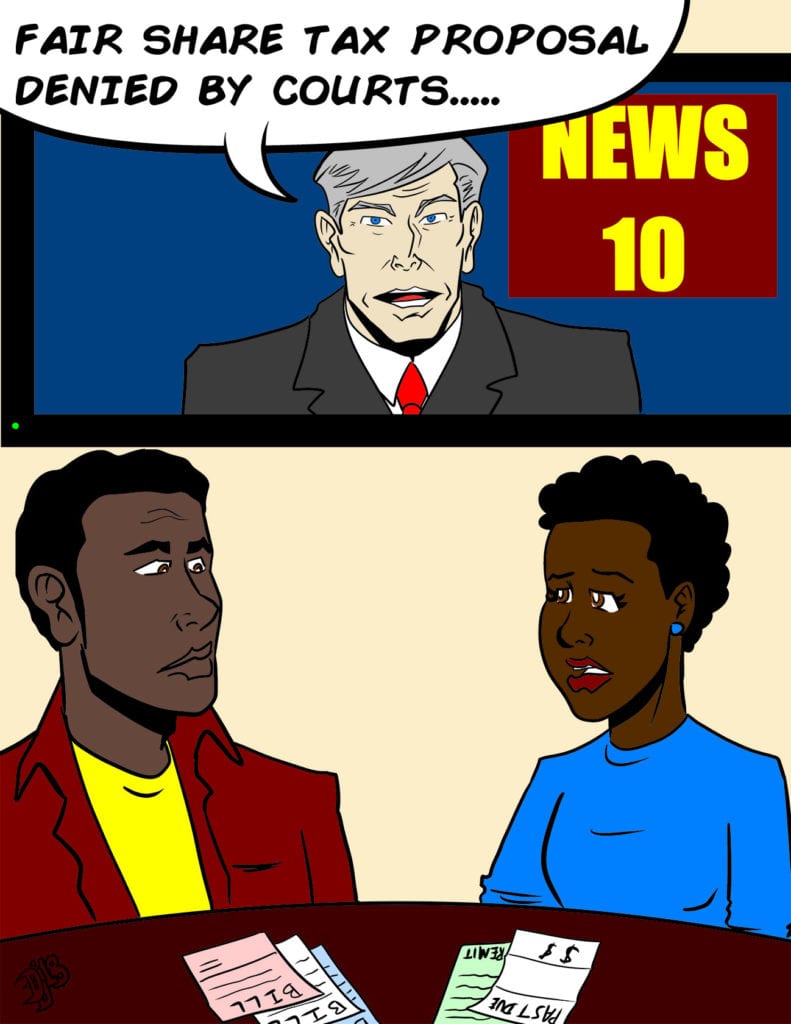
According to polls, more than 70 percent of Massachusetts voters supported a “Fair Share” tax that would impose a 4 percent surtax on personal income in excess of $1 million. The extra funds were to be used only to finance public education and transportation. However, those opposed to this initiative petition filed suit against such a constitutional amendment, and they prevailed in a 5-to-2 decision of the Supreme Judicial Court.
Many expected the effort to fail for several reasons. While there is a universal abhorrence for personal income taxes, support for the “Fair Share” approach was so high probably because it would affect only those relatively few with income greater than $1 million.
Another reason is that the United States is a representative democracy. There has always been reluctance to have voters directly involved in financial matters. While Section 8 of Article One of the U.S. Constitution empowers Congress “to lay and collect Taxes, Duties, Imposts and Excises…” there was no provision at all for federal income taxes in 1791 when the Constitution was ratified. It took another 122 years for that to happen with ratification of the 16th Amendment in 1913.
Those who supported the “Fair Share” proposal are reluctant to lose an estimated $2 billion of revenue every year. There is some interest in trying again. While there are graduated tax rates for federal taxes at various income levels, Massachusetts tax payers have a flat 5.1 percent tax rate. Some variation will occur because of income deductions. Several earlier attempts to establish graduated income taxes in Massachusetts have failed.
In order to change the state Constitution to permit graduated income taxes the procedure is complex. The proposed provision would have to be approved by a vote of 25 percent of the members of both legislative chambers in two successive sessions. The state Senate has 40 members and the House has 160. So there must be 50 positive votes from the combined legislative membership of 200 in order to have the constitutionally required 25 percent vote. Then the measure goes on the ballot.
The proposed initiative petition must be clearly worded with only one subject. Failure to comply with this requirement was fatal to the earlier effort. There is no connection between education and transportation.
It is unreasonable for those who did not succeed with their “Fair Share” campaign to be hostile to their opponents. Many citizens are vehemently opposed to the wasteful expenditure of public funds. For example, the pay for a four star general in the U.S. Army is $186,996, a mere pittance compared to the compensation for police officers in Boston and elsewhere. According to a recent report, police captains in Methuen, Mass., a town with 47,250 residents, are scheduled to be paid $432,000 annual salaries. Such disparities are difficult to justify. Voters are rarely critical of excessive expenses of government.
But in a re-run of the “Fair Share” strategy, more voters might be enthusiastic if they are convinced that a campaign for public fund frugality is also involved.






